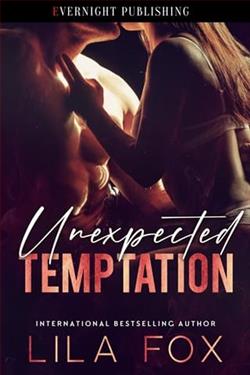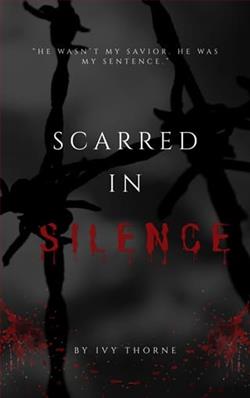Page 1 of The Duke's Rebellious Love
CHAPTER1
White’s Club, London. April 1818.
Today was Jasper Mavor,the Duke of Woolwich’s birthday. He sat in his gentlemen’s club, pristinely, if demurely, dressed in his favoured dark clothes, barely listening to the surrounding conversation of two gentlemen who sat nearby. Their talk weaved together a blend of gossip, innuendos, and pointless male speculation about the new Season. Woolwich retreated behind his newspaper.
Noblemen, he concluded, could be as vicious with their pointed talk as ladies were lauded to be. He reasoned that this was probably true for all humanity—it was a mess of mirthless people, a relentless pit of cruelty, with few that emerged with any dignity.
A small caveat, he supposed, would be made for his young son, Beau, or Earl of Saunders, if Jasper was to use his son’s proper title, but since he hardly ever saw the boy, he could only base this off the occasional glimpse of the child’s welcoming smile and happy little giggle. That had been enough jarring sweetness, and Woolwich had avoided the boy for the last six months. It hurt him, but he doubted the child would truly desire his company, certainly not when the boy found out what a monster his father was.
Woolwich’s time was much better spent managing his estates and keeping an eye on the finances so that when he died, Beau would inherit a wealthy and prosperous dukedom—at least he could give his son that.
None of this gloomy perspective could be attributed to the beauty of the room. No, the club was arranged to the utmost ofton-ish perfection—the heavy, rich green drapes were artfully hung by the windows, masking the bright rays of sunlight. The dark upholstery were in keeping with the sofas and armchairs throughout the room. Added to this was the slight smell of rich, bitter coffee that Woolwich rather liked.
Woolwich’s cynicism had not always been so pronounced. In the past, he would have loved it if someone could have wished him a happy birthday. Now he shuddered to remember such a vulnerability in himself.
To many men, and presumably society at large, Woolwich was seen as a fortunate individual. He had money, honourably created through vast boroughs and tracts of land in England. His blond physique was, on occasion, likened to that of an ancient Viking because he was considerably taller than the average male. This might make some ladies nervous, but it helped in terms of intimidation when he was in The House of Lords. He was a widower, but as luck would have it, his wife had given him an heir before she died, so the need to marry again was not a burden that sat on him.
The door of White’s library opened, and in entered Mr. Michael Trawler, followed in close pursuit by Baron Edward Verne, two members of the Oxford Set—a group of friends, who had met at Oxford University over a decade ago, and been given the moniker because of their close friendship. At one time, Woolwich had considered himself a key part of that Set. No more. Whether this was down to the affair that had broken Woolwich’s marriage, or to the death of one of the members, was a topic that Woolwich had no desire to dwell on, and no one else was too keen to raise it, at least not in his presence.
It was Trawler who saw Woolwich first. His amber eyes flashed in recognition. Presumably, based on the smile and his bronzed skin, Trawler had enjoyed his honeymoon in Greece. There was a bounce to his tawny auburn hair and to his step. He cheerfully waved in greeting, which almost had Woolwich wishing to sink farther into the armchair and become invisible despite his fondness for Michael.
Tugging on Verne’s sleeve, Trawler motioned that they should cross the room. Verne nodded, more circumspect in his consideration as his perceptive gaze acknowledged Woolwich’s reluctant welcome. His dark eyes assessed Woolwich, but he made no overt sign of greeting.
Folding up his paper in preparation for their arrival, Woolwich said to himself that he had been using it as a shield to hide from any conversation.
On their arrival, Verne sank himself neatly into the opposing armchair, whereas Trawler made a great fuss, greeting and absconding with a chair which had made up another’s table as he settled between them.
“It is good to see you in town,” Verne said, his voice lightly accented with a pleasing French inflection. “I was fortunate to bump into Trawler outside, having just arrived in the city.”
“Yes, it turns out my newly rented house is just around the corner from Verne’s townhouse,” Trawler continued. “So, I cannot stay too long. My wife wished to visit her brother, but we thought we’d settle in together this evening. Into our new home.” Trawler was bashful as he looked down at his hands with smug satisfaction at his own good fortune. His infatuation with the scandalous Lady Viola had been known to Woolwich for years, and their marriage just two months ago had changed Trawler’s persona. Lifting a bright, roguish, and successful businessman into someone best described now as a lovesick swain. He would not be surprised if Trawler started reciting poetry. It was enough to turn Woolwich’s stomach.
“I would imagine you are pleased to return to Town. Your business must have missed you,” Woolwich declared, but Trawler just looked perplexed. In frustration, Woolwich turned to Verne. Was it not enough that he had subjected himself to Trawler’s wedding on Valentine’s Day, of all the sentimental romantic drivel, that he must now be dragged back through his friend’s newfound wedded bliss? It was not to be borne. A change of subject was necessary.
Verne shrugged. Woolwich liked how quiet this man could be, in sharp contrast to Trawler’s character. It would not be unheard of for Verne to sit beside him in White’s, for the two of them to enjoy companionable silence.
“I shall miss the country. Nothing compares to the splendid beauty of the Cornish coastline as the leaves change colour. We spent much of the last year with my wife’s family. Olympe has recently finished her second novel, so we are up to Town to show it to her publisher.” With that, Verne launched into a description of looking after his ‘beautiful daughter’ whilst his wife worked away, that Olympe called out for advice when she was stuck, and how she would emerge with ink-stained fingers for dinner to reclaim her daughter and husband. Worst of all, it seemed that Verne found the entire interlude delightful.
Woolwich was certain that the blood was draining from his face as he listened to these bucolic renderings. Trawler and Verne talked on and on whilst Woolwich enjoyed digging himself further into his silence, nestling there as a safe space that was his solace.
“At some point, the Set’s children will have to meet,” Verne said as he eyed Woolwich, and he realised, much to his disgust, that they were trying to include him in their conversation.
“I have none to offer,” Trawler laughed. “Although His Grace may be able to help.”
“You refer to my son?” Woolwich asked, looking between them in surprise. Just because Verne liked nothing more than parading around with his fine little daughter did not mean Woolwich should do the same. At this point, Woolwich would not be surprised if Verne were to bring his infant Diana into White’s, despite it being a gentlemen’s club, with no thought to decorum or derision. With a dismissive frown, he said, “My son, his lordship, is with the dowager in Essex. Unless Lord Saunders is unwell, my son will have no need to come to Town.”
It did not go unnoticed, the slight tightening of Verne’s lips, as if he was suppressing a smile, and even more noticeable was the snort of Trawler’s laughter at how Woolwich was talking of his son.
“Come,” Trawler said cheerfully, “little Beau must be nearing four now.”
“His birthday falls at the end of April. It is not a celebrated occasion, given it is also the date of my wife’s death,” Woolwich added. Of course, he sent the boy presents, but he preferred never to go himself. He had been careful to choose the most suitable of gifts, and he diligently read through any of the fairy tales to ensure there was no mention of dead parents. It was disturbing how few stories could be deemed suitable. Perhaps it was a sentimental tick of his, but distressing his son was not something he wished to do. His mother wrote every month of the child’s progress, and Woolwich was pleased to hear how bright and well-mannered the boy was.
“You were missed at Hurstbourne Manor this Christmas. You weren’t able to see Trawler acting like a mooncalf around Lady Viola. Although I suppose you caught the tail end of the affair with their wedding,” Verne said.
“Heatherbroke and his wife were in attendance at Christmas.” Woolwich stared at the two men, the heat of his anger burning brightly through him. Eight and half years ago, Heatherbroke had slept with his late wife. She had borne Heatherbroke’s daughter, and here were his friends, expecting Woolwich to simply shrug and forget this hideous betrayal. He was lucky that no one in society beyond his immediate Set knew the truth. “No. No. I will not be subjected to that man’s presence if I can avoid it.” Unable to sit still any longer, Woolwich got to his feet, his frame rigid with fury. With brisk steps, he moved across to the window. He looked down into the handsome St James Street below, viewing without seeing the passing carriages and busy promenading ladies and gentlemen here to begin their Season.
A gentle hand came out and touched Woolwich’s shoulder. Looking back, Woolwich eyed Verne.
“He destroyed my marriage. It took years to mend it, and then she died,” Woolwich said.















